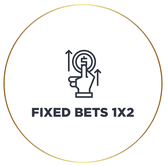Analyzing football odds while experiencing mental fatigue can significantly impact decision-making processes. Mental fatigue, a state resulting from prolonged cognitive activity, impairs cognitive functions such as attention, memory, and reasoning. This can lead to increased susceptibility to biases and impulsive decisions, such as placing bets without thorough analysis.
Research indicates that mental fatigue diminishes the ability to evaluate risks accurately. When fatigued, individuals are more likely to rely on heuristics or mental shortcuts, which can lead to errors in judgment. This state also reduces self-regulation, increasing the likelihood of making hasty and less rational betting choices.
Understanding the effects of mental fatigue on decision-making is crucial for developing effective betting strategies. By recognizing the signs of mental fatigue and implementing measures such as taking breaks, ensuring adequate rest, and setting predefined betting limits, bettors can mitigate its impact.
This approach can help maintain a more disciplined and analytical betting strategy, reducing the risk of common pitfalls associated with mental fatigue.
Key Takeaways
- Mental fatigue impairs decision-making abilities, leading to poor judgment in football betting outcomes.
- Increased cognitive load due to mental fatigue can result in slower reaction times and compromised risk assessment.
- Behavioral biases, such as overconfidence and confirmation bias, are exacerbated by mental fatigue, affecting betting decisions.
- Regular breaks and mindfulness practices can mitigate mental fatigue, enhancing focus and clarity in betting.
- Sleep deprivation linked to mental fatigue can significantly impact the ability to evaluate odds and betting strategies.
Understanding Mental Fatigue
Mental fatigue is a condition that can subtly impact cognitive functions, including the ability to think clearly and make informed decisions. Unlike physical exhaustion, mental fatigue arises when the brain’s cognitive resources are taxed. This can result in slower reaction times and compromised judgment, which are critical in activities such as football betting, where decisions need to be both timely and precise.
Recognizing the indicators of mental fatigue is essential for effective management:
-
Lack of Focus: There may be difficulties in concentrating on tasks or executing plans consistently.
-
Memory Issues: Frequent forgetfulness of details or essential information can occur.
-
Irritability: Minor frustrations may lead to heightened impatience.
-
Decision-Making Difficulties: Even straightforward decisions might become challenging and time-consuming.
To address mental fatigue, several strategies may be beneficial:
-
Regular Breaks: Taking short, periodic breaks during tasks can help refresh cognitive functions.
-
Adequate Sleep: Ensuring sufficient sleep is crucial for restoring brain function.
-
Mindfulness Practices: Engaging in activities like meditation can enhance mental clarity.
Cognitive Load in Decision-Making
Cognitive load significantly influences decision-making processes, particularly in contexts such as football betting, where a substantial amount of information needs to be assessed. Cognitive load is defined as the total mental effort required to process information in working memory. An increase in cognitive load may hinder the ability to make well-reasoned decisions.
Characteristics of Cognitive Load:
-
Information Overload: In the context of betting, individuals must evaluate numerous factors including game statistics, player performance, and weather conditions. An excess of information can lead to cognitive overwhelm.
-
Time Constraints: Decisions in betting often need to be made swiftly. Limited time can elevate cognitive load, potentially impairing judgment.
-
Distractions: External elements such as noise and multitasking can contribute to cognitive load, thereby making concentration challenging.
Implications for Decision-Making:
-
Working Memory Capacity: The human brain has a finite capacity for temporarily storing information. When cognitive load exceeds this capacity, important details may be overlooked.
-
Cognitive Strategies: Employing strategies such as dividing information into smaller, more manageable segments can help to alleviate cognitive load.
Impact on Risk Assessment
Impact on Risk Assessment
Understanding the influence of cognitive load on decision-making is crucial when examining its effects on risk assessment in football betting. When individuals experience mental fatigue, their capacity to accurately evaluate risks is compromised. This can result in suboptimal betting decisions.
Here is a breakdown of how mental fatigue affects risk perception:
-
Increased Errors: Mental fatigue leads to a higher likelihood of errors. Important statistics or trends may be overlooked, resulting in inaccurate risk evaluations.
-
Overconfidence: Fatigue may contribute to overconfidence in betting decisions, potentially leading to greater risks being taken without fully considering potential losses.
-
Delayed Reactions: Slower reaction times due to fatigue can hinder the ability to quickly assimilate new information, affecting the assessment of risks.
-
Simplified Decision-Making: To conserve mental resources, individuals might rely on simplified decision-making processes, possibly disregarding complex data that could enhance risk assessment.
In summary, mental fatigue can distort risk assessment by impairing critical thinking and decision-making abilities.
Recognizing when decisions are being made under less-than-ideal conditions can help in implementing strategies to mitigate these effects, such as taking breaks or establishing strict betting limits.
Effectively managing mental fatigue can lead to more accurate risk assessments in football betting.
Behavioral Biases in Betting
Bettors often find themselves repeating the same mistakes due to behavioral biases. These biases significantly influence judgment during betting, as mental shortcuts, or heuristics, can lead to errors. They affect how information is perceived and decisions are made.
Common biases include:
-
Overconfidence Bias: This occurs when bettors overestimate their knowledge or skill, leading to risky betting behavior.
-
Confirmation Bias: Bettors may seek information that aligns with their existing beliefs and ignore data that contradicts those beliefs.
-
Recency Bias: Recent events may disproportionately influence decision-making, causing bettors to neglect the broader context.
-
Loss Aversion: This bias leads individuals to avoid potential losses more strongly than they pursue equivalent gains, affecting their risk-taking behavior.
-
Gambler’s Fallacy: Bettors might erroneously believe that past outcomes affect future events, such as assuming a losing streak will soon end.
These biases can become more pronounced when individuals are mentally fatigued, as fatigue reduces the ability to process information and make reasoned decisions.
Consequently, reliance on these shortcuts may increase, impacting betting outcomes. Understanding these biases helps explain recurring patterns in betting behavior, but addressing them requires additional strategies beyond mere awareness.
Strategies to Combat Fatigue
Addressing mental fatigue requires the implementation of strategies designed to maintain cognitive clarity and enhance decision-making in betting contexts. Here are several approaches that can be considered:
1. Structured Breaks:
- It’s advisable to schedule regular breaks during betting sessions. These breaks provide an opportunity to rest the mind, preventing the overload of continuous information processing.
2. Prioritize Sleep:
- Obtaining 7-8 hours of sleep per night is recommended. Quality sleep plays a crucial role in rejuvenating the mind, thereby increasing alertness and focus.
3. Balance Nutrition:
-
Consuming balanced meals that are rich in vitamins and minerals is important.
-
Additionally, maintaining proper hydration is essential to support cognitive functions effectively.
4. Exercise Regularly:
-
Engaging in physical activities, such as walking or jogging, can be beneficial.
-
Exercise is known to increase blood flow to the brain, which in turn can enhance mental clarity.
5. Manage Stress:
-
Implementing relaxation techniques, such as deep breathing or meditation, can help manage stress levels.
-
By reducing stress, individuals may experience a decrease in mental exhaustion, leading to improved decision-making.
6. Limit Distractions:
-
Minimizing exposure to unnecessary information is crucial.
-
Focusing on relevant data helps to avoid cognitive overload, thereby supporting more effective processing and analysis.
Also, I advise you to read our article The Role of Physical Fitness and Conditioning in Football Betting.
Enhancing Focus and Stamina
Enhancing focus and stamina for football betting involves implementing strategies that promote mental sharpness. Establishing a structured routine is essential, as consistency in a daily schedule can help regulate mental energy, ensuring alertness during bet analysis.
Key strategies include:
-
Balanced Nutrition: Consuming a diet rich in fruits, vegetables, and whole grains supports brain function. Maintaining hydration by drinking adequate water is also crucial for mental sharpness.
-
Regular Exercise: Engaging in activities like walking or cycling can release endorphins, which improve mood and concentration, both important for making betting decisions.
-
Scheduled Breaks: Taking regular breaks during betting sessions is important to prevent mental fatigue, allowing for a refreshed perspective upon return.
-
Mindfulness Practices: Techniques such as meditation and deep breathing can enhance focus. Mindfulness can reduce stress and help maintain clarity during betting activities.
-
Adequate Sleep: Obtaining 7-9 hours of sleep each night is vital for restoring cognitive functions, which are critical for evaluating odds and making strategic bets.
Long-Term Implications for Bettors
Over time, mental fatigue can have a considerable impact on a bettor’s decision-making abilities and financial outcomes. When frequently experiencing fatigue, one’s capacity to effectively analyze games, understand odds, and make sound decisions may diminish, potentially leading to suboptimal betting strategies and increased risk of losses.
Key Long-Term Implications:
-
Decreased Analytical Skills: Mental fatigue can impair information processing, resulting in impulsive decisions rather than strategic and well-considered choices.
-
Financial Losses: Consistently poor decision-making due to fatigue may lead to financial strain, impacting savings and overall financial stability.
-
Increased Risk-Taking: Fatigue can increase the likelihood of engaging in unnecessary risk-taking, with the intent of quickly recovering losses, which often doesn’t yield the desired outcome.
-
Emotional Impact: Ongoing losses can lead to frustration and stress, which may affect mental well-being and diminish the enjoyment of betting activities.
Strategies for Mitigation:
-
Regular Breaks: Taking breaks can help in maintaining clarity and focus, which are crucial when placing bets.
-
Healthy Lifestyle: Adopting a balanced diet and engaging in regular exercise can enhance mental stamina and resilience.
-
Time Management: Limiting betting sessions can help prevent prolonged mental strain, thereby reducing the risk of fatigue-related decision-making errors.
Frequently Asked Questions
How Does Mental Fatigue Differ From Physical Fatigue in Football Betting?
Mental fatigue affects your decision-making and focus, leading to impulsive bets. Unlike physical fatigue, which tires your body, mental fatigue clouds your judgment, increasing errors. Stay alert by taking breaks and managing stress to improve outcomes.
Can Environmental Factors Exacerbate Mental Fatigue in Bettors?
You might not realize how much environmental factors impact your mental fatigue when betting. Noise, distractions, and poor lighting can drain your focus. Minimize these elements to improve your decision-making and enhance your betting success.
Are There Specific Times When Mental Fatigue Is Most Likely to Influence Betting Decisions?
You’re most prone to mental fatigue influencing betting decisions during late nights or after a long workday. When you’re tired, your decision-making skills falter, increasing impulsivity and risk-taking, potentially leading to less favorable outcomes.
Do Professional Bettors Experience Mental Fatigue Differently Than Casual Bettors?
You might wonder if pro bettors feel mental fatigue differently than casual ones. They often have strategies to manage stress and maintain focus, but the high stakes could still impact their mental resilience in unique ways.
How Can Technology Be Used to Monitor Mental Fatigue in Real-Time During Betting?
You can use wearable devices and AI-driven apps to track your mental fatigue in real-time. These tools analyze physiological signals like heart rate and brain activity, giving you instant feedback to manage your betting decisions effectively.
Conclusion
To improve your football betting outcomes, it’s crucial to manage mental fatigue effectively. By understanding how fatigue affects decision-making and risk assessment, you can reduce impulsive actions and behavioral biases. Implement strategies such as:
- Taking regular breaks
- Ensuring adequate sleep
- Practicing mindfulness
These steps enhance focus and stamina, helping you make better-informed betting decisions. Recognizing and addressing mental fatigue not only boosts immediate performance but also supports long-term success in betting endeavors.

